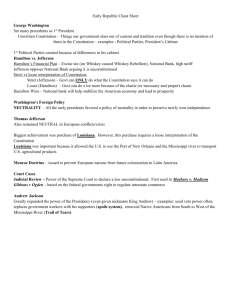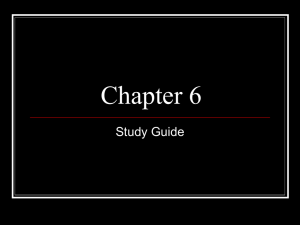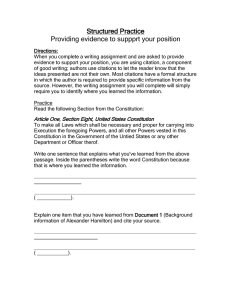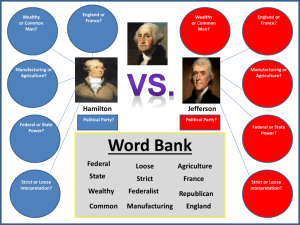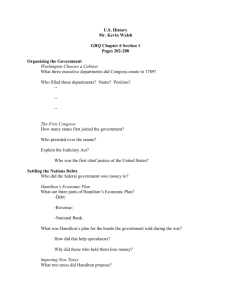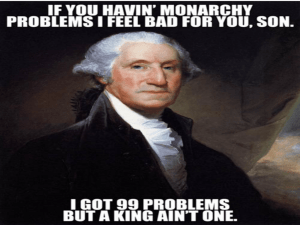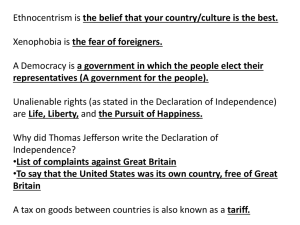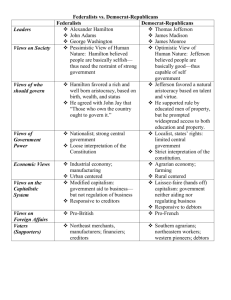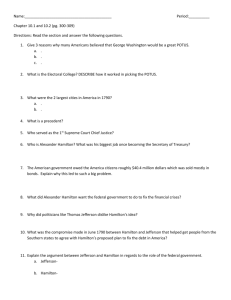4.5 - Loose VS Strict Interpretation
advertisement
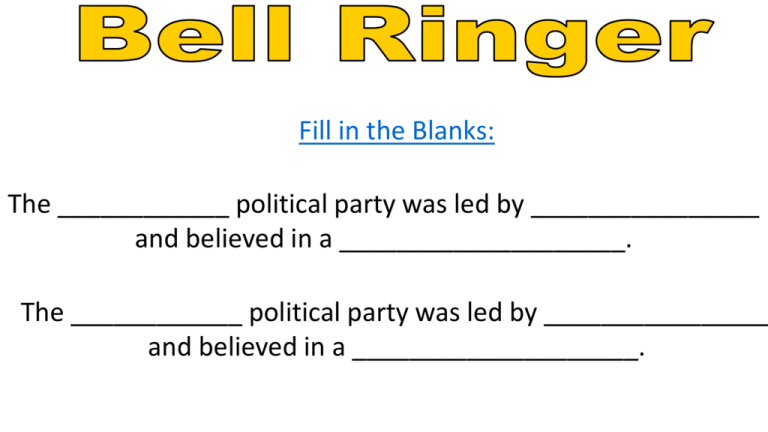
Fill in the Blanks: The ____________ political party was led by ________________ and believed in a ____________________. The ____________ political party was led by ________________ and believed in a ____________________. Directions: - Get out your notes (#4), and open up to the chart you used to write your paragraphs. - Exchange papers with someone NOT SITTING NEXT TO YOU! - Go through and make sure the paragraphs you have from the other person have EVERYTHING on that chart! - For each thing not mentioned, put a “-1” on the top of the paper and make a list of the detail missing!!! Reasons: • Hamilton thought a national bank was needed to manage national debt and interest payments • Issue bank notes to promote trade, investment, and stimulate economic growth The Arguments: Southern Opposition: • The stock holders would mostly be Northern merchants • Congress did not have the authority (enumerated power) to create such a bank Results: • Hamilton: was necessary to collect taxes, regulate trade, provide defense • Congress passed the Bank Bill under the Elastic Clause (“necessary and proper”) • Jefferson: “necessary” mean absolutely necessary, not just convenient • Washington signed the Bill into Law in 1791 (with a 20 year charter) • LOOSE INTERPRETATION!!!!!! Strict: Loose: • Limited the power of the Federal Government • Gave the Federal Government more power • The Fed. Government does not have a power or the authority to do anything unless it is EXPRESSLY WRITTEN in the Constitution • The Fed. Government has powers that are implied in the Constitution, but that are NOT EXPRESSLY WRITTEN • Did not like the “necessary and proper” clause because they felt it would be abused • JEFFERSON “necessary does not mean convenient” • Loved using the “necessary and proper” clause • HAMILTON “it is clearly within the provision which authorizes the making of all needful rules concerning the property of the United States”
